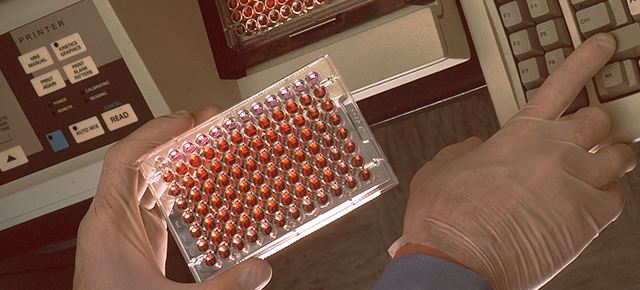From the labs to patent; osteoarthritis gene-therapy product is moving toward clinical trials
More than 30 million people in the United States alone are affected by osteoarthritis (OA), a degenerative joint disease, and that number is expected to rise. While currently available therapies can help manage the symptoms of OA, there are no approved treatments to address the underlying cause of the disease, which is why Dr. Brendan Lee, chair and Robert and Janice McNair Endowed Chair and Professor in the Department of Molecular and Human Genetics at Baylor College of Medicine, and his colleagues have been focused on finding a new way to treat this condition.

In past studies they and others have found that the interleukin-1 pathway plays a role in inflammation that is involved in this disease and is a potentially effective target in OA. To address the issue of limited availability of interleukin-1 receptor antagonist (IL-1Ra), a protein that impedes the inflammatory nature of the interleukin-1 pathway, the research team developed a helper-dependent adenovirus-mediated gene therapy to enable the long-term expression of IL-1Ra, thereby resulting in a potential sustained symptomatic and disease-modifying therapy for OA.

Encouraging results
Working in mouse and horse models of OA they were able to see significant improvement in range of motion, joint preservation when it came to OA as a result of injury, and decreased inflammation. Read more about this research that also involved Flexion Therapeutics and GeneQuine.
“The issuance of a U.S. patent for FX201 is a great step for Flexion, and they are now completing GLP (good laboratory practice) toxicology studies and moving toward clinical trials to test the safety and efficacy of this gene therapy in those who are living with OA,” Lee said. “If successful, FX201 could become the first disease modifying treatment for OA, a disease that affects millions of people.”
U.S. Patent No. 10,301,645 was awarded to Baylor College of Medicine in Houston, Texas by the U.S. Patent and Trademark Office. In December 2017, Flexion acquired the global rights to FX201 from GeneQuine Biotherapeutics GmbH, and as part of that agreement, Flexion obtained an exclusive license to the underlying intellectual property rights from Baylor for human applications.



